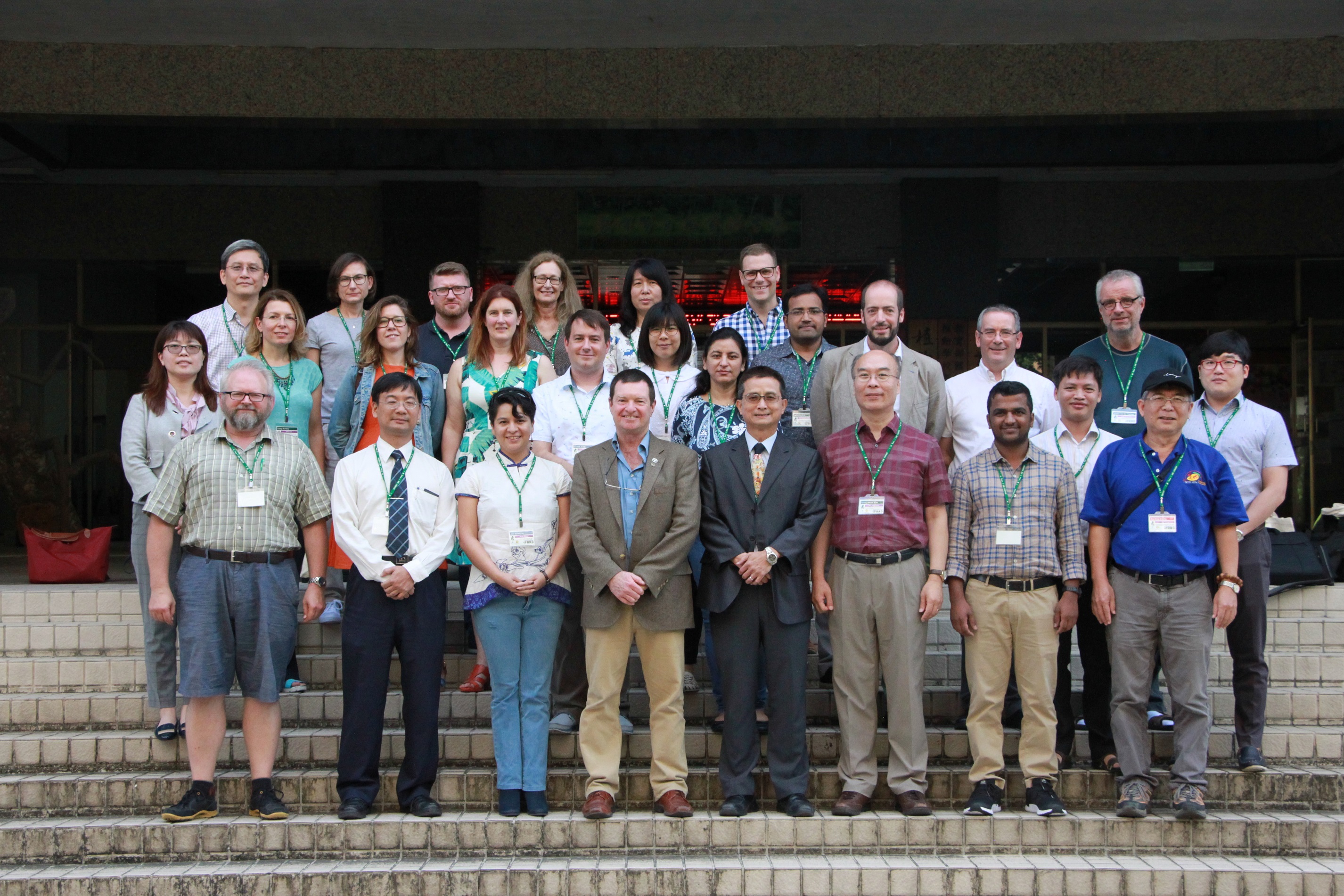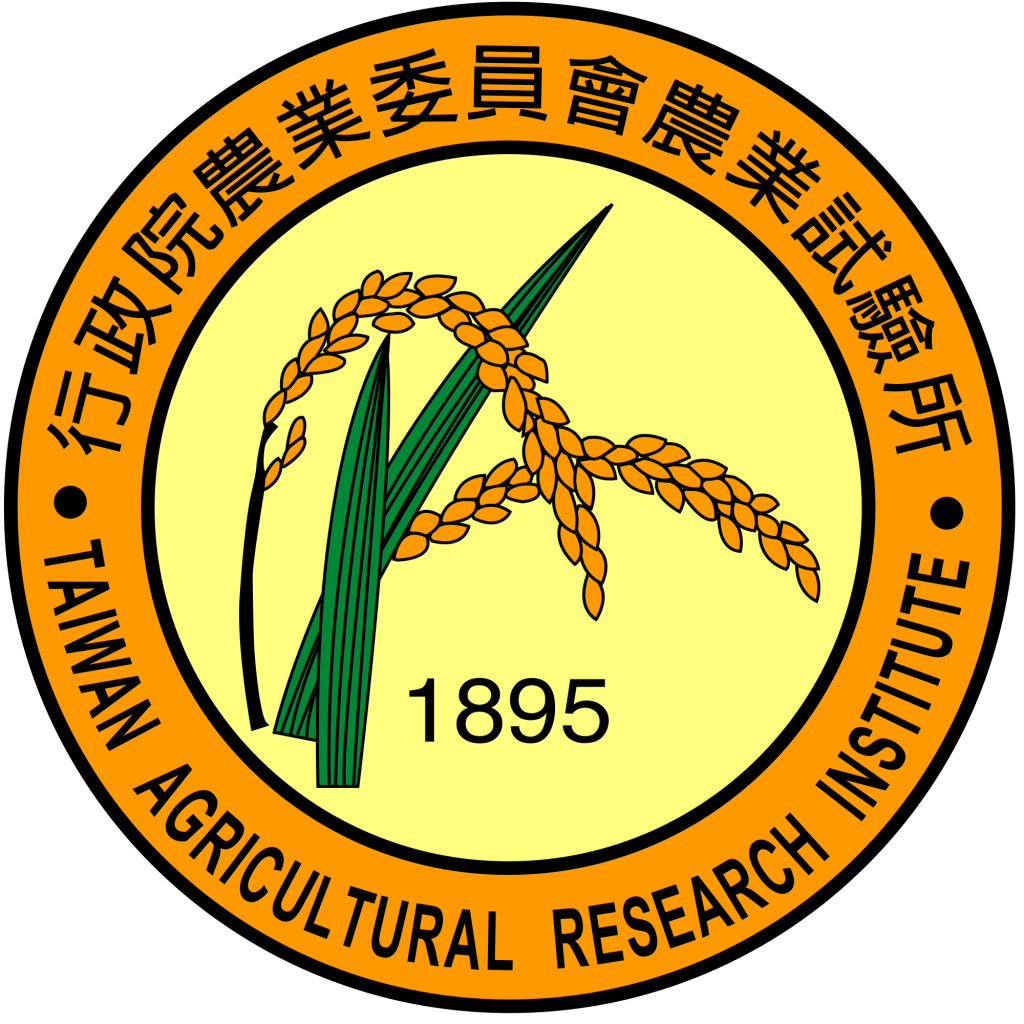IPRRG 2018: International Pest Risk Research Group 12th Annual Meeting
Burgeoning Asian Trade Connectivity: Implications for International Pest Risks
Taichung, Taiwan (hosted by the Taiwan Agricultural Research Institute and National Chung Hsing University)
16-19 October 2018

IPRRG 2018 participants (National Chung Hsing University campus, Taichung, Taiwan)
30 participants from 13 countries!
Attendee List
Programme & Abstracts
Congratulations to our medal winners!
Best Presentation: Alan MacLeod
Best Poster: Martin Damus
Best Student Presentation: Papitchaya Teawkul
Day 1 – Tuesday 16 October
| Presenter |
Title |
Affiliation |
| Darren Kriticos |
Welcome to IPRRG 2018 |
CSIRO, Australia |
| Shaw-Yhi Hwang |
Welcome to Taichung and National Chung Hsing University |
National Chung Hsing University, Taiwan |
| Darren Kriticos |
History of IPRRG: accomplishments and intentions |
CSIRO, Australia |
| Tse-Wei (Daniel) Chen |
Pest risk assessment and plant quarantine policy in Taiwan |
Plant Quarantine Division, Bureau of Animal and Plant Health Inspection and Quarantine (BAPHIQ), Taiwan |
| Aaron Dodd |
Biosecurity at the system-scale: What’s it worth? |
CEBRA, University of Melbourne, Australia |
| Frank Koch |
Where the (urban) palms are: potential impact of a palm pest on the US mainland |
USDA Forest Service, Southern Research Station |
| Berta Sanchez |
Developing a methodology to prioritize EU plant pests based on socio-economic and environmental impacts: the Impact Indicator of Quarantine Pests (IIQP) |
European Commission, Joint Research Centre (JRC), Spain |
| Alan MacLeod |
A quantitative assessment of the likelihood of Spodoptera frugiperda entering the EU at a sub-national spatial scale and the effect of mitigation measures |
Defra, UK |
| Melanie Newfield |
When they’ve already made up their mind: lessons from recognition-primed decision-making |
Ministry for Primary Industries, New Zealand |
| Helen Harman |
Which risk assessment for decision-makers? |
Ministry for Primary Industries, New Zealand |
| Yu-Bing Huang |
The impact of climate change on the potential geographic distribution and population occurrence of the tomato fruit worm (Helicoverpa armigera) (Note: in PowerPoint format to preserve video & animation) |
Taiwan Agricultural Research Institute (TARI) |
| Tuan Pham Anh |
Estimating the pest impact under climate change: Elevated CO2 with temperature condition reduces performance of Spodoptera litura F. due to reducing the nutritional value and secondary compounds on foliage of Rorippa dubia Persoon. |
National Chung Hsing University, Taiwan |
| Kyungsan Choi |
Elevated CO2 may alter pheromonal communication in Helicoverpa armigera |
Research Institute of Climate Change and Agriculture (RICCA), National Institute of Horticultural and Herbal Science, Republic of Korea |
Day 2 – Wednesday 17 October
| Presenter |
Title |
Affiliation |
| Andrew Robinson |
Proportional allocation of inspection resources to heterogeneous strata delivers nominal sensitivity: Contradicting an international regulatory standard |
CEBRA, University of Melbourne, Australia |
| Denys Yemshanov (by Frank Koch) |
Optimal surveillance of biological invasions: comparing risk-based and acceptance sampling approaches |
Natural Resources Canada, Canadian Forest Service |
| Wopke van der Werf |
Modelling to predict introduction and spread of forest pests in Europe |
Wageningen University, Netherlands |
| Gabriel Diaz Padilla |
Spatial dispersion pattern and development of a sequential sampling plan for the Asian citrus psyllid (Hemiptera: Liviidae) in Mexico |
National Institute for Forestry, Agriculture and Livestock Research (INIFAP), Mexico |
| Darren Kriticos |
The potential global distribution of Spodoptera frugiperda sensulato: sensitivity to climate change and climate variability (Note: in PowerPoint format to preserve video & animation) |
CSIRO, Australia |
| Kylie Ireland (by Darren Kriticos) |
Why are plant pathogens under-represented in eco-climatic niche modelling? |
CSIRO, Australia |
| Chuan-Kai Ho |
Warming impact on herbivore population composition affects top-down control by predators |
National Taiwan University |
| Papitchaya Teawkul |
Impacts of elevated temperature and CO2 concentration on plant-insect interaction in subtropical regions |
National Chung Hsing University, Taiwan |
| Jaba Jagdish |
Effect of sowing dates, climatic variables on major insect pests and host plant resistance to pod borer Helicoverpa armigera (Hubner) in pigeonpea (Cajanus cajan (L.) Millsp.) |
International Crops Research Institute for the Semi-Arid Tropics (ICRISAT), India |
| Mamta Sharma |
Effect of changing weather variables on the outbreak of legume diseases |
International Crops Research Institute for the Semi-Arid Tropics (ICRISAT), India |

Field visit to Tea Research and Extension Station / Yuchin Branch, Day 3
Day 3 – Thursday 18 October

Group brainstorming session, Day 4
Day 4 – Friday 19 October
| Presenter / Participants |
Title |
| Meeting attendees (moderators: Darren Kriticos and Frank Koch) |
Workgroup brainstorming session [“thought piece” notes / outline] |
| IPRRG Executive Committee |
Past, present and future of IPRRG: getting down to business – Business Meeting |
Posters







